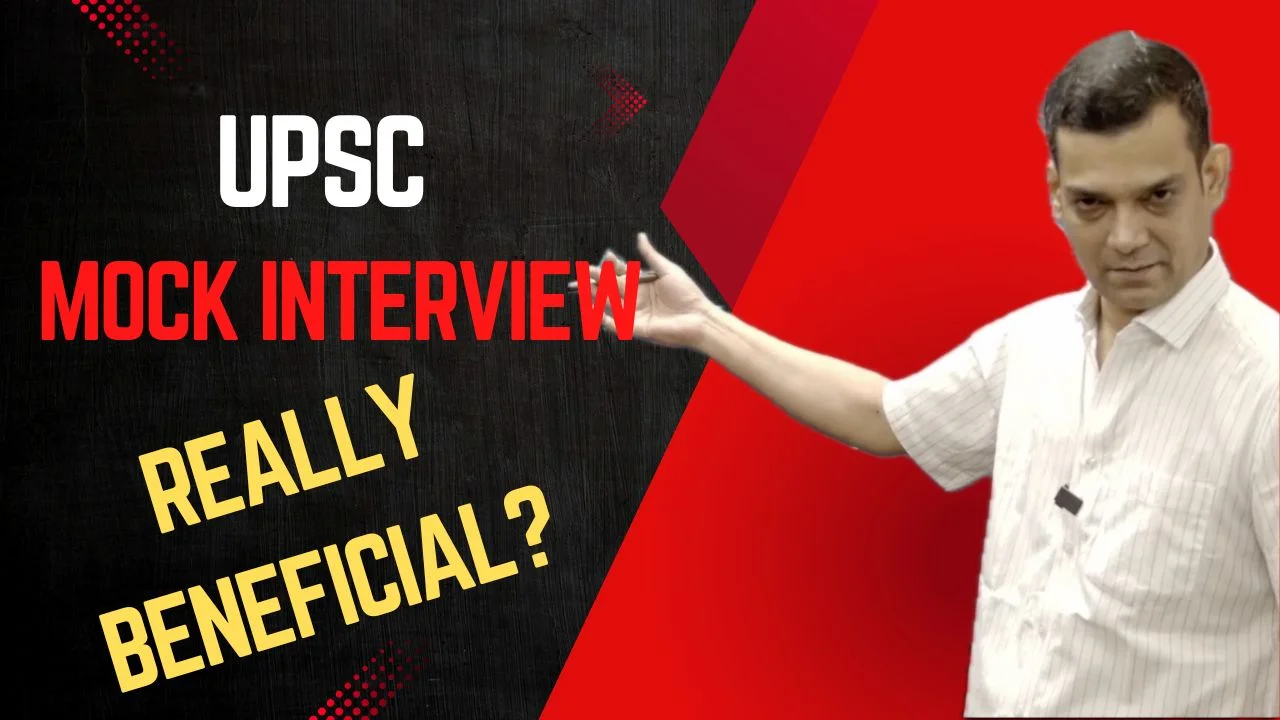The UPSC Civil Services Examination (CSE) is not just an academic test—it’s a comprehensive evaluation of a candidate’s knowledge, personality, and potential as a public servant. While the Prelims and Mains test analytical and writing skills, the Interview stage—officially known as the Personality Test—assesses the candidate’s overall suitability for a career in civil services.
But here’s the question many serious aspirants are quietly asking:
Do mock interviews really matter that much? Or have they become just another coaching industry product?
Mock Interviews: Reality vs. Hype
Mock interviews can be useful. But they’re not magic. And not all of them are worth your time—or your money.
Most mock interviews offered by coaching institutions serve one of three purposes:
- Basic Exposure: Helping first-time interviewees understand how a panel interview
works. - DAF Drilling: Preparing candidates for questions from their Detailed Application
Form (hometown, education, hobbies, job experience, etc.). - Confidence Boosting: For those nervous about formal environments, mocks offer
practice in staying calm and composed.
But beyond these benefits, many mocks fall short. Here’s why:
“In one mock, I was grilled for 20 minutes about farming practices in my district. In the
actual interview, they asked me about badminton, my hobby. Mock interviews prepare you
for a version of the interview that may never happen.”
— UPSC Interview Candidate, 2023
The Problem with Institutional Mocks
1. One-Size-Fits-All Panels
Most institutes claim to simulate the UPSC board. But the reality is, you’re often interviewed
by retired teachers, internal faculty, or ex-bureaucrats .The tone and style vary drastically from the real interview. Real UPSC boards are calm, composed, and non-confrontational.
Many mock panels tend to be unnecessarily aggressive or overly analytical.
2. Feedback That Doesn’t Go Deep
Some institutions give generic feedback like:
- “Improve your posture.”
- “Avoid saying ‘umm’ too much.”
- “Read more about your DAF.”
While useful, such feedback is often surface-level and fails to address deeper issues like
biases in your answers, contradictions in your opinions, or a lack of emotional intelligence.
3. DAF Overkill
Institutes often hyper-focus on DAF analysis, trying to predict every question that could be
asked from it. But in the actual interview, questions can be unexpected, indirect, or not
from your DAF at all.
4. Mock Fatigue
Some aspirants go overboard, attending 5 to 10 mocks across different institutes. Instead of improving, they end up confused by conflicting feedback and lose their original voice.
What Good Mock Interviews Actually Do
This is not to say mock interviews are useless. But their value lies in how you use them.
1. Self-awareness Check
A good mock interview shows you:
- How you speak under pressure.
- How clear your thought process is.
- How your personality appears to strangers.
It gives you a mirror—not answers.
2. DAF Sensitization
While DAF prediction is a hit or miss, good panels help you look at your DAF through a
critical lens, so you’re ready for anything.
“A mock panel pointed out that a line in my hobby sounded fabricated. They were right. I
changed it. In the real interview, I was asked about it.”
— AIR 121, UPSC 2021
3. Developing Presence, Not Perfection
The interview is not about flawless answers. It’s about honesty, maturity, and balance.
Good mocks help you get comfortable with not knowing everything—and responding
gracefully when you don’t.
How to Make the Most of Mock Interviews
Here’s how to get real value:
- Limit Quantity, Focus on Quality: 2–3 mocks are enough if you internalize the
feedback. - Don’t Chase Flattery: If a panel says “You’ll be in the top 100”, smile and move on.
You’re not done yet. - Use Video Feedback Honestly: Watch your recordings not for vanity, but to spot
nervous ticks, tone problems, or inconsistent body language. - Retain Your Core Personality: Don’t become robotic or overly rehearsed. The board
wants authentic people, not rehearsed actors.
Final Thoughts: You’re the Product, Not the Coaching
“The real purpose of the Personality Test is to see whether you’ll make a good civil servant,
not whether you can answer factual questions.”
— Former UPSC Chairman
The best mock interview is you talking to yourself in the mirror, honestly.
Institutions can guide you. But they can’t shape your personality. That part is on you.
Use mocks for what they are—practice arenas, not prediction machines.

